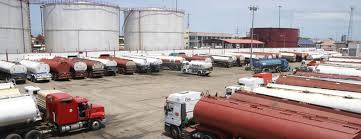Some labour leaders and other stakeholders have emphasised the need for to analyse the issue of fuel subsidy removal mentioned in President Bola Tinubu’s inaugural speech.
Tinubu, on taking office on Monday, said that the budget in place before his coming on board made no provision for fuel subsidy, and so it was gone.
The President commended the decision of the Buhari administration in phasing out the petrol subsidy regime, saying it had increasingly favoured the rich more than the poor.
“Subsidy can no longer justify its ever-increasing costs in the wake of drying resources. We shall instead re-channel the funds into better investment in public infrastructure, education, health care and jobs that will materially improve the lives of millions,” he said.
Labour leaders said on Monday in Lagos that the issue needed a holistic approach.
The National Deputy President, Trade Union Congress of Nigeria (TUC), Mr Tommy Okon, said that there had to be stakeholders engagement in which organised labour was one.
“So, we cannot just comment on it until we are engaged, but we have made our position known in our charter of demand to remove fuel subsidies.
“So, it will not be a one-off response because organised labour are partners in progress; they need to sit down and discuss and agree before that is done to avoid industrial unrest, “ Okon said.
Also, Mr Lumumba Okugbawa, the Secretary-General, Petroleum and Natural Gas Senior Staff Association of Nigeria, said stakeholders would sit to analyse the situation and proffer the way forward for the betterment of the country.
“We need to analyse the situation, sit with stakeholders including government, and see the way forward.
“This is pending when our local refineries, which has been our major point, that once we produce locally, all these issues about subsidy removal will not be there.
“Once we produce locally, not that the price will not be there, but at least, it will be reduced,” Okugbawa said.
On his part, the Secretary General, TUC, Mr Nuhu Toho, said the union would issue a statement in reaction to some of the issues raised in the president’s inaugural speech.
Some stakeholders in the oil and gas industry have commended President Bola Tinubu’s pronouncement on removal of fuel subsidy.
They made the commendations in Lagos on Monday after Tinubu’s inaugural speech as Nigeria’s President.
Mr Mike Osatuyi, the National Operations Controller, independent Petroleum Marketers Association of Nigeria (IPMAN), said that the removal was a welcome development geared toward revamping the downstream sector of oil and gas industry.
Osatuyi said that Tinubu had promised to remove fuel subsidy right from the first day of his campaign.
The president during his inaugural address, promised to end fuel subsidy, insisting that no budgetary allocation was made in the 2023 budget.
Tinubu promised to focus subsidy funds on infrastructural projects, education and healthcare.
According to Osatuyi, the pronouncement is part of his campaign promises.
He said that Tinubu during his campaign had said that from day one of his administration that he would remove fuel subsidy.
“The money used on subsidy will be diverted to develop other sector.
“That means Tinubu has begun to fulfill his campaign promises,” he said.
The IPMAN boss said that the removal would bring about competition among players and also address the issue of monopoly.
Osatuyi said that the subsidy removal would lead to market liberalisation, availability of product and check excesses of middlemen.
He, however, said that there would be increase in price of petroleum but added that there would be competition.
Osatuyi noted that the money saved from subsidy removal would be used to boost the economy and the well-being of Nigerians.
“I commend his effort and laud the courage for taking the bull by the horn.
Also, Mr Tunji Oyebanji, Managing Director, 11 Plc, said that the pronouncement was a timely decision for the country.
Oyebanji, however, said it was not clear if the removal of fuel subsidy was with immediate effect.
“Scarce resources will be channelled to productive sectors of the economy.
“Borrowing levels will reduce significantly. It may possibly lead to the strengthen of the Naira,” he said.
Mr Obafemi Olawore, former Executive Secretary of the Major Oil Marketers Association of Nigeria (MOMAN), who supported the subsidy removal, said there was need for the nation to move toward full deregulation.
“However, as a new admintration, it must be done in phases; over six to 12 months to give room for consultation and engagement so as to make it bearable and less painful.
Mr Joe Nwakwue, an oil and gas consultant and a former Chairman, SPE Nigerian Council, said that President Tinubu was right when he said that petroleum subsidies are no longer sustainable.
Nwakwue said that considering the pain and social implications of removal, it would be irresponsible for any government to just yank it off without a plan.
“A multi-month plan that addresses key fuel market issues/challenges and measures to alleviate the pain needs to be crafted, adopted and rolled out.
“A knee jerk removal would be painful to the consuming public and potentially catastrophic to the economy,” he said.




